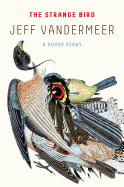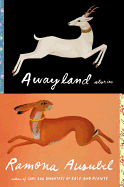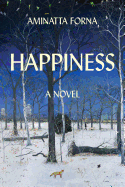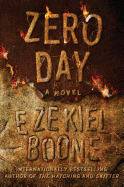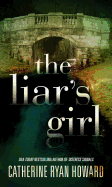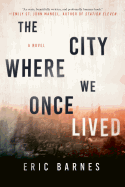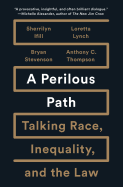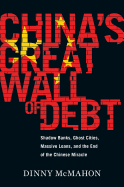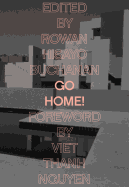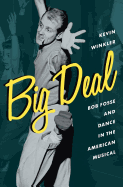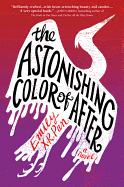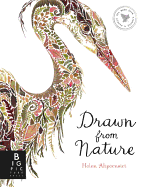Breaking the Cycle of Toxic Stress
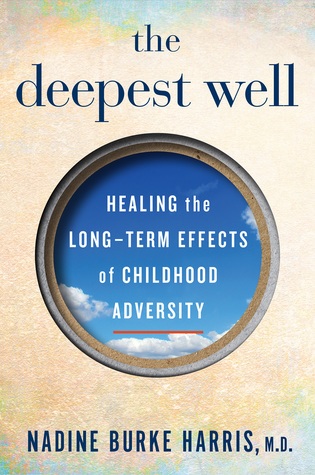 What we believe: "People who are smart and strong enough are able to rise above the past and triumph through the force of their own will and resilience." In The Deepest Well: Healing the Long-term Effects of Childhood Adversity (Bluebird, $21.90), Nadine Burke Harris says, "But with caveats." Childhood adversity can affect physical development, trigger chronic inflammation and hormonal changes, alter how cells replicate, and dramatically increase the risk for heart disease, stroke, cancer, obesity, diabetes and Alzheimer's. "Even bootstrap heroes find themselves pulled up short by their biology." Burke Harris wanted to know why; she found the answers in her pediatric clinic in a low-income community of color in San Francisco.
What we believe: "People who are smart and strong enough are able to rise above the past and triumph through the force of their own will and resilience." In The Deepest Well: Healing the Long-term Effects of Childhood Adversity (Bluebird, $21.90), Nadine Burke Harris says, "But with caveats." Childhood adversity can affect physical development, trigger chronic inflammation and hormonal changes, alter how cells replicate, and dramatically increase the risk for heart disease, stroke, cancer, obesity, diabetes and Alzheimer's. "Even bootstrap heroes find themselves pulled up short by their biology." Burke Harris wanted to know why; she found the answers in her pediatric clinic in a low-income community of color in San Francisco.
It began with Diego, a seven-year-old with ADHD and a physiology three years younger. He'd been sexually assaulted at age four; an endocrinologist confirmed that trauma was enough to stop his growth. Stunned, Burke Harris coupled that with the glut of ADHD children, all with high degrees of life disruption or trauma. She and her staff determined that high doses of stress hormones at the wrong developmental stage affected children's downstream health. "The difference between adaptive and maladaptive reactions is all about the when. "
Building on a 1998 article, "The Adverse Childhood Experiences (ACE) Study," she and her colleagues refined its ACE questionnaire to 10 questions covering emotional or physical neglect, abuse, etc., that a child has experienced up to 18 years of age, in order to evaluate stress. Burke Harris explains the biology and chemistry underlying the findings, the treatment of toxic stress, and says, "The first step is taking its measure and looking clearly at the impact and risk as neither a tragedy nor a fairy tale but a meaningful reality in between... you can be proactive… you can identify triggers and know how to support yourself and those you love." She believes that we can "rewrite the story of adversity and break the intergenerational cycle of toxic stress."
The Deepest Well is part medical detection, part personal story, and always inspirational. Nadine Burke Harris is on a mission to change every child's story. --Marilyn Dahl
Breaking the Cycle of Toxic Stress
Reading with... Andrew Weiner
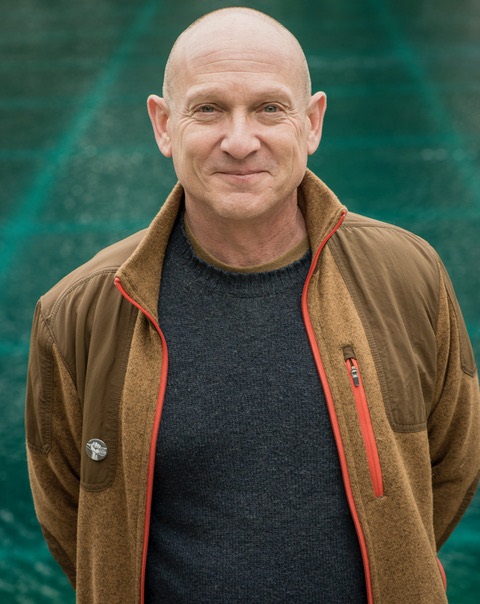 |
| photo: Sharon Beals |
Andrew Weiner is a longtime publishing professional and an avid fly-fisher. He lives in Albany, Calif. His first book is Down by the River (Abrams Books for Young Readers, March 6, 2018), a picture book about fly fishing illustrated by April Chu.
On your nightstand now:
Reckless Daughter: A Portrait of Joni Mitchell by David Yaffe. Joni became the soundtrack of my life in the '70s, and her music still is probably the most important to me.
Favorite book when you were a child:
Something Wicked This Way Comes by Ray Bradbury. It was a book about friendship and evil, but in the end, love was what saved a boy and his father.
Your top five authors:
Thomas Perry
Wallace Stegner
Ivan Doig
Josephine Humphreys
Kent Haruf
That's not even close to representing a tiny fraction of the authors I love.
Book you've faked reading:
The Satanic Verses by Salman Rushdie--I read the first 100 pages of the galley and then the forces of the world took over.
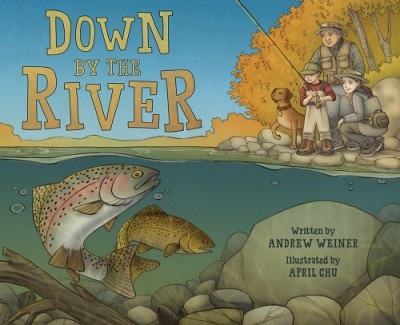 Book you're an evangelist for:
Book you're an evangelist for:
Winter Vault by Anne Michaels. She writes so beautifully about love.
Book you've bought for the cover:
Probably a book of the art of Maynard Dixon, my favorite artist.
Book you hid from your parents:
We didn't hide books in my house. My father was a writer and my mother a long-time bookseller. When I was in high school and staying home sick, I asked my mother to bring me home some dirty books to read in my misery. And she did.
Book that changed your life:
My father Jack B. Weiner's book The Morning After.
Favorite line from a book:
From Albert Camus's La Chute (The Fall) and apparently also the Bible. "Woe to you when all men think well of you."
Five books you'll never part with:
Well, I was out of work once and sold a first edition of One Hundred Years of Solitude, among others. So I guess the answer is, there is no book I wouldn't part with.
Book you most want to read again for the first time:
Perhaps Angle of Repose by Wallace Stegner.
What it's like to have your first book published at the age of 60:
It is extraordinary and gratifying and exciting. And it is a lot of fun.
Reading with... Andrew Weiner
The Children of Literary Fathers
Pop quiz: "Can you pick the literary fathers when given the names of their children?" Mental Floss challenged.
---
"Our very favorite Reese Witherspoon literary roles" were featured by Quirk Books.
---
Headline of the day (via the Guardian): "Spanish publisher subverts court gag by using Don Quixote to recreate banned book."
---
Buzzfeed showcased "'25 libraries every voracious reader must absolutely visit."
---
CrimeReads toured "the 7 creepiest manor houses in mystery."
The Children of Literary Fathers
Rediscover: Philip Kerr
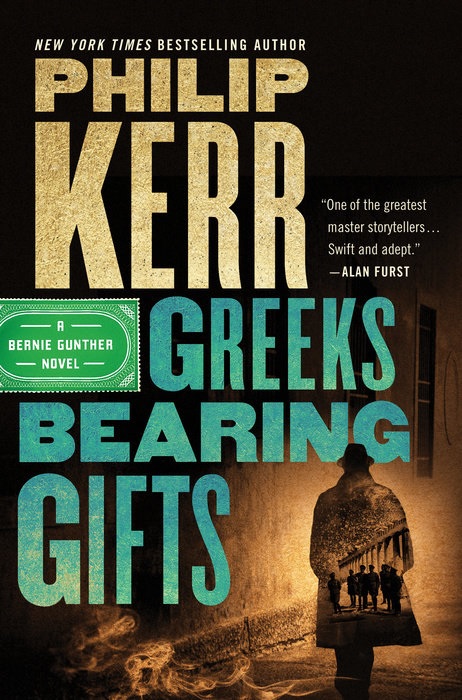 Philip Kerr, the British author best known for his Bernie Gunther historical mystery series, died last week at age 62. Born in Edinburgh, Kerr worked as a copywriter before turning to fiction writing in 1989. His first novel, March Violets, introduced Bernie Gunther, a 38-year-old private detective in mid-1930s Germany. Kerr's British publisher, Quercus, described Gunther as a "cynical, erudite, wise-cracking, fiendishly clever man, lover of women, hater of Nazis and yet obliged to work for them to survive." March Violets (1989), The Pale Criminal (1990) and A German Requiem (1991) constitute the Berlin Noir trilogy, which follows Gunther through postwar Germany. They remain Kerr's bestselling titles, and were republished in one volume by Penguin Books in 1993.
Philip Kerr, the British author best known for his Bernie Gunther historical mystery series, died last week at age 62. Born in Edinburgh, Kerr worked as a copywriter before turning to fiction writing in 1989. His first novel, March Violets, introduced Bernie Gunther, a 38-year-old private detective in mid-1930s Germany. Kerr's British publisher, Quercus, described Gunther as a "cynical, erudite, wise-cracking, fiendishly clever man, lover of women, hater of Nazis and yet obliged to work for them to survive." March Violets (1989), The Pale Criminal (1990) and A German Requiem (1991) constitute the Berlin Noir trilogy, which follows Gunther through postwar Germany. They remain Kerr's bestselling titles, and were republished in one volume by Penguin Books in 1993.
Kerr was also the author of a YA fantasy series called Children of the Lamp and a thriller trilogy featuring Premier League soccer coach Scott Manson. His stand-alone novels include the science-fiction thrillers A Philosophical Investigation (1992) and Gridiron (1995; published as The Grid in the U.S.). Kerr returned to the Bernie Gunther series in 2006 with The One from the Other, followed by eight more entries between 2008 and 2017. On April 3, Marian Wood Books/Putnam will publish Greeks Bearing Gifts ($27, 9780399177064). Prior to his death, Kerr completed Metropolis, the 14th and final Gunther mystery, which will be published in 2019. --Tobias Mutter
Book Review
Fiction
The Strange Bird
by Jeff VanderMeer
Jeff Vandermeer (the Southern Reach Trilogy) brings a delicate lyricism to science fiction. His characters fly over vast reaches of destroyed landscape and recalibrate themselves at a molecular level, but to read his work feels more like delving into something by James Joyce than Ray Bradbury. The Strange Bird, a novella taking place in the universe of his novel Borne, is no exception. Its lyrical powers make it worthy of existence, even as it needs its predecessor for stability.
Born (or perhaps more fittingly: created) in a lab with other animals, the Strange Bird is imbued with myriad powers and an internal compass that points her toward an unknown destination. Escaping from the lab, she takes to the sky to find what she believes will be her home, discovering landscapes of devastation after a human-caused (but otherwise unexplained) apocalypse. Attacked and captured by a survivor, she witnesses firsthand how her captor's trauma forces him to relive the terror of his life before the cataclysm. Eventually she lands in the middle of the events of Borne, witnessing it as (literally) an adornment of the Magician, one of the book's villains.
The Strange Bird is at its best before it runs into the tangential plotline; a quiet and elegiac look at what humans do to their surroundings and the lies they tell themselves to survive. Once the characters from Borne enter, The Strange Bird essentially becomes a sequel (although a highly interesting and moving one). This tender little novella shows Vandermeer's skills in prose and character. --Noah Cruickshank, adult engagement manager, the Field Museum, Chicago, Ill.
Discover: The Strange Bird is an elegiac accompaniment to Jeff VanderMeer's novel Borne.
MCD/Farrar, Straus and Giroux,
$10,
paperback, 128p., 9780374537920
Awayland
by Ramona Ausubel
Few story collections in recent memory have been as simultaneously funny, sad and peculiar as Ramona Ausubel's breathtaking Awayland. Following the success of her 2016 novel Sons and Daughters of Ease and Plenty (an NPR Best Book of the Year), the collection sings with Ausubel's offbeat wit and scrupulous prose. The stories are thematically linked by far-away places, both real and metaphorical. An American flies to Beirut to visit her mother, who is literally dissolving into thin air. An Earthling prepares to move to Mars, and a mayor of a dying small town dreams of creating a place worth visiting. Taken together, the stories form a rich tapestry of feelings, dreams and disappointments.
"You Can Find Love Now" is one of the more surreal offerings: a Cyclops searches for love on an Internet dating site. "What are your interests?" asks the online questionnaire. "I hand-sew my own shoes using a needle made from the fang of a wolf," writes the one-eyed monster. "Remedy" is another standout, in which a young woman, deep in love with a new beau, is convinced she's dying. Desperate to stay close to him even after death, she tries to convince him to have her hand surgically sewn on to his arm. What follows is a strange and tender account of their negotiation of the matter.
No two stories are alike, but every character feels a part of the same extraordinary world that Ausubel has created. Playful yet affecting, Awayland is the vibrant work of a gifted storyteller. --Amy Brady, freelance writer and editor
Discover: This quirky collection of short stories features characters who travel to far-away places, real and imagined, to find love and deal with loss.
Riverhead,
$26,
hardcover, 240p., 9781594634901
Happiness
by Aminatta Forna
Happiness, Aminatta Forna's fourth novel, a follow-up to The Hired Man, is about love, trauma, immigration and the conflict between nature and civilization, among other things. The plot is built around the chance meeting of two outsiders in London: Jean, an American studying urban foxes, and Attila, a Ghanaian psychiatrist in the city to give a keynote speech on trauma. Through their repeated meetings--Attila takes the position that coincidences "happen far too often to be considered extraordinary"--Jean and Attila gradually become insinuated in each other's lives.
The search for a missing young boy becomes the pretext for a variety of characters to bump into each other, from Jean and Attila to a lot of hotel doormen, security guards and even one man moonlighting as a "living statue." Many of the characters are immigrants--Forna pays particular attention to West African transplants to London. It would be reductive to refer to Happiness as a love story, but the bond that slowly develops between Jean and Attila is an obvious highlight.
Jean and her urban foxes struggle to adapt to abnormal circumstances. Her fierce love of animals and nature puts her in conflict with urban dwellers who fear and hate the wild creatures that intrude on their orderly world. Jean's wide-ranging empathy lies at odds with entire communities--like London--and even those close to her, as in her previous marriage. Happiness observes them building a new community, a found family composed of oddballs and outsiders. Forna's novel is unusual and engaging, heartfelt and ambitiously crafted. --Hank Stephenson, bookseller, Flyleaf Books, Chapel Hill, N.C.
Discover: The lives of an American doing a study on urban foxes and a Ghanaian psychiatrist specializing in trauma collide among the expatriates and immigrants in London.
Atlantic Monthly Press,
$26,
hardcover, 368p., 9780802127556
Mystery & Thriller
Zero Day
by Ezekiel Boone
In Ezekiel Boone's Zero Day, the final book in the Hatching trilogy, nuclear bombs have been dropped on more than 30 cities in the U.S. The nation's highways have been destroyed, yet the advance of millions of extremely large black spiders from west to east continues. The flesh-eating, eight-legged creatures spread in other countries around the globe as well, threatening the existence of humankind. U.S. president Stephanie Pilgrim and her entourage have a command center onboard an aircraft carrier and are deliberating their next moves. If the scientists are right and the spiders work as a unit, then they need to find the controlling spider(s) and kill them. But if the scientists are wrong, as some in the government believe, and they don't continue to use nuclear force against the invaders, then the spiders win.
Boone focuses on the multiple characters he's expertly created, who are searching for a method to destroy the queen spiders. A web of dissent and danger that rivals the arachnid destruction shows government officials and parts of the military defying the president and her orders. Boone carefully spins out his tale--including scary interactions with the alien invaders--as he leads readers to an explosive, knuckle-biting end that successfully ties up all the loose strands. Zero Day is a thriller of grand proportions that will ensure humans are scared of spiders for years to come. --Lee E. Cart, freelance writer and book reviewer
Discover: As flesh-eating spiders continue to advance, will the U.S. president and her scientists find the solution to this global problem?
Atria,
$26,
hardcover, 336p., 9781501125102
The Liar's Girl
by Catherine Ryan Howard
For the past 10 years, Alison Smith has built a new life in the Netherlands after leaving her home in Ireland. When two Garda detectives arrive at her door, they shatter her existence once again by saying their visit is about Will. As in Will Hurley, her former boyfriend at St. John's College in Dublin and current resident at the city's Central Psychiatric Hospital. Alison and Will were madly in love during their time at St. John's, until female students started turning up dead in the canal--and Will confessed to being the killer. Devastated, Alison fled the country, leaving her past and everything else behind.
Now another young woman's body has been found in the canal, a possible copycat killing. Will claims to have information that could help catch the killer, but he'll talk only to Alison. She agrees to meet with him, ostensibly to help prevent any additional murders, but realizes she must finally ask Will whether or not he's guilty--and if not, why he confessed.
With The Liar's Girl, Catherine Ryan Howard has written an even more sophisticated psychological thriller to follow her Dagger-nominated debut, Distress Signals. In alternating chapters taking place then and now, Howard's portrait of Alison as a bright girl full of hope starkly contrasts that of the woman whose light has been dimmed by tragedy. The exploration of the characters' inner lives--their jealousy, guilt, misguided chivalry--is as riveting as the crime. --Elyse Dinh-McCrillis, blogger at Pop Culture Nerd
Discover: A woman must confront her former boyfriend--a confessed serial killer--to help catch a possible copycat murderer.
Blackstone,
$24.99,
hardcover, 9781504782548
Science Fiction & Fantasy
The City Where We Once Lived
by Eric Barnes
Allowed to continue unchecked, climate change and growing lack of compassion could most certainly play out as they do in Eric Barnes's prescient third novel, The City Where We Once Lived. Barnes (Shimmer) has constructed an intricate apocalyptic world that frighteningly mirrors present-day reality.
Ravaged by weather and industrial decline, North End is down to 2,000 stalwart residents who did not relocate to thriving South End. North End is viewed as a lawless land of isolationists and scavengers stripping it to its core; its people cultivate that façade to discourage trouble-seeking South Enders from traversing the remaining overpass into their peaceful domain.
Barnes provides a haunting portrait of the future through the eyes of a narrator who spends his days memorializing North End for the eight-page newspaper. Living in a deserted hotel, the narrator describes his daily excursions and increasing interactions with new people in the area. Some evoke hope, while others threaten the order--evidence South End may not be as stable as it appears.
When tragedy strikes, the haves are forced to rely on the have-nots, further bridging North and South Ends in a way neither populace desires. Through stark yet intimate prose, Barnes explores themes of separatism and displacement and how the lenses we look through are often distorted by lack of connection and empathy. He offers a cautionary tale about a world that feels a hair's-breadth away. --Lauren O'Brien of Malcolm Avenue Review
Discover: In this intimate glimpse into a near-future "quiet Armageddon," neighboring cities are threatened by changing climate, exposure to toxic chemicals and the decline of purpose and value.
Arcade Publishing,
$24.99,
hardcover, 244p., 9781628728835
Political Science
A Perilous Path: Talking Race, Inequality, and the Law
by Loretta Lynch, Anthony C. Thompson, Bryan Stevenson, Sherrilyn A. Ifill
In 2017, the New York University School of Law launched the Center on Race, Inequality and the Law, to create a home for scholars who study the complicated relationship between racial politics and legal structures in the U.S. To mark the center's inception, faculty director Anthony C. Thompson gathered a panel of brilliant African American thinkers and activists: NAACP Legal Defense Fund president Sherrilyn Ifill, former Attorney General Loretta Lynch and NYU professor Bryan Stevenson. They held a candid conversation on systemic racism in the U.S, and A Perilous Path is the book that resulted from this sharp, insightful discussion, moderated by Thompson.
The panelists cover a range of topics: education, immigration, public housing, community policing, the gains of the civil rights movement, the benefits and backlash that resulted from the presidency of Barack Obama. They discuss public housing, the privatization of infrastructure and the necessity of using legal expertise to push for greater equality. Emphasis is placed on the importance of winning the "narrative battle": creating a culture that acknowledges the legacy of slavery and racism, while arguing for the inherent worth of every person. "I want to deal with this smog created by our history of racial inequality, so we can all breathe something healthy," Stevenson says. The conversation is sobering, but not without hope: indeed, as Stevenson asserts, "injustice prevails where hopelessness persists." In today's fraught moment, voices like these--undergirded by decades of scholarship, activism and deep personal experience--are more necessary than ever. --Katie Noah Gibson, blogger at Cakes, Tea and Dreams
Discover: Four prominent African American scholars and activists discuss the fraught relationship between race and the law in the U.S.
The New Press,
$14.99,
hardcover, 128p., 9781620973950
China's Great Wall of Debt: Shadow Banks, Ghost Cities, Massive Loans, and the End of the Chinese Miracle
by Dinny McMahon
Common opinion has it that when the United States is no longer the big gorilla in the world economy, China will take its place. But Beijing correspondent for the Wall Street Journal Dinny McMahon may be on to something the rest of the opinion-makers have overlooked. China's Great Wall of Debt is his contrarian analysis of the fundamental instability of the massive credit octopus that underlies China's astounding economic growth.
With a balanced mix of anecdotal observation and statistical analysis, the book covers the complex system that creates "new money" debt to support the Chinese Communist Party's strategic objectives. McMahon interviews private business owners, former farmers, party bureaucrats and even a newly rich broker of vintage baijiu (the popular Chinese liquor Dan Rather called "liquid razor blades"). Untangling the balance sheets of banks, private and state-owned companies, and recent peer-to-peer Internet lenders, McMahon concludes that China is so awash in debt that any unanticipated hiccup could send it into an economic tailspin--a disaster similar to the United States "great recession" following the fall of Lehman Brothers.
In his travels, McMahon sees firsthand the Potemkin villages of empty apartment towers. He observes the world's largest stamping forge, now idle for lack of business, and bulldozed hills flattened to provide land for yet more unnecessary factories. While admitting that economic naysayers have been wrong about China before, McMahon nonetheless makes a convincing (and surprisingly entertaining) argument that China's day of reckoning may come sooner rather than later. --Bruce Jacobs, founding partner, Watermark Books & Cafe, Wichita, Kan.
Discover: A Beijing correspondent for the Wall Street Journal, McMahon mixes anecdotal observations and statistics to illustrate China's precarious financial credit pyramid.
Houghton Mifflin Harcourt,
$28,
hardcover, 288p., 9781328846013
Essays & Criticism
Go Home!
by Rowan Hisayo Buchanan, editor
In Go Home!, Rowan Hisayo Buchanan (Harmless Like You) gathers eminently talented Asian and Asian American artists to explore their notions of home, each distinct and deeply moving in their own way. For some, it is still real and accessible, although fraught with emotion, while for others, home as they remember it no longer exists. It can be a complicated web of yearnings or a devastatingly simple vision.
For Nepalese writer Muna Gurung it is her humble mother, Aama, and the soft coolness of her skin. In Taiwanese American writer Esmé Weijun Wang's essay, home is evoked longingly in a blessed bowl of gluten-free beef noodle soup. Meanwhile, the poet Jason Woo captures it in his touching recollection of a road trip with his father and their unexpected detour through Cooperstown, N.Y.
In these stories, essays and poems, home can take a dark turn, as in Alice Sola Kim's arresting, otherworldly glimpse into the lives of young, female Korean adoptees conjuring up the spirit of a universal "mother," all-knowing but also dangerously all-consuming. Humor surfaces in this wondrous collection; one of Syrian activist Mohja Kahf's poems is a hilarious recollection of her Middle Eastern Muslim grandmother performing ablution in the ladies' restroom at Sears. Other customers balk at the sight of this old woman washing her feet in the sink and expect the young Kahf to play referee in their "clash of civilizations."
Effectively dismantling all sorts of stereotypes, Buchanan's anthology gives voice to notions of identity, belonging and displacement that are much more vast, complex and textually rich than mere geography. --Shahina Piyarali, writer and reviewer
Discover: Writers and poets from the Asian diaspora reflect on the very personal meaning of home.
Feminist Press,
$18.95,
paperback, 320p., 9781936932016
Big Deal: Bob Fosse and Dance in the American Musical
by Kevin Winkler
Big Deal examines Bob Fosse's four-decade career as one of the brightest lights in Broadway musical theater as a choreographer and director. Kevin Winkler, a former dancer and New York Public Library archivist, conducted interviews with dozens of dancers who worked with Fosse (1927-1987) on stage and screen. He also uses the personal papers of Fosse and wife Gwen Verdon to construct an amazingly exhaustive, intimate and riveting career biography of his subject.
As a teen, Fosse performed in vaudeville, nightclubs and burlesque houses. A film contract with MGM led to appearing in and choreographing musicals on Broadway. Winkler looks at all of Fosse's work on stage (including Pajama Game, Damn Yankees, Sweet Charity, Chicago), film (Cabaret, All That Jazz) and TV specials. He assesses each musical number from each production and analyzes how Fosse's aesthetic changed over the decades. Big Deal focuses on the director's work life--and he was a true workaholic. In 1973, he won the show business triple crown: an Oscar for Cabaret, a Tony for Pippin and an Emmy for Liza with a Z. "The only salvation for me is work--just to keep rehearsing," Fosse said. "Only then do I experience absolute happiness." There's still plenty of juicy backstage gossip (Fosse's bitter battles with Pippin's composer and lyricist Stephen Schwartz; his brief tenure directing Barbra Streisand in Funny Girl after producers fired Jerome Robbins).
Big Deal is an authoritative, passionately written and essential reference guide to all of Bob Fosse's musical numbers. Musical theater fans will tip their hats (Fosse-style) to this affectionate and energetic tribute. --Kevin Howell, independent reviewer and marketing consultant
Discover: Big Deal scrutinizes all of Bob Fosse's musical numbers in this passionate, intimate overview of his four-decade career on Broadway and in films.
Oxford University Press,
$29.95,
hardcover, 368p., 9780199336791
Children's & Young Adult
The Astonishing Color of After
by Emily X.R. Pan
Leigh and best friend Axel "figure out what the other person's feeling" by asking " 'What color?' ": "carbazole violet" for silence, "burnt orange" for anger, "Prussian blue" for hurt. Their unexpected first kiss sets off a "whole goddamn spectrum" of feelings Leigh doesn't have time to process before falling into "the gaping black hole" of her mother's sudden suicide.
And yet Leigh's mother isn't exactly dead; she's morphed into a bird. "This isn't like some William Faulkner stream-of-consciousness metaphorical crap," Leigh insists, "My mother. Is literally. A bird." Huge, red, beautiful, the bird delivers a box to Leigh from maternal grandparents she's never met, with instructions to bring it to Taiwan for a first-ever visit.
Traveling with her Irish American father--ironically, he's fluent in Mandarin, while English was the only language Leigh spoke with her mother--she arrives as a virtual stranger at her aging grandparents' home. Estranged since her parents' marriage, the fractured extended family will share haunting truths and healing revelations. In her mother's homeland, Leigh grows into her name--Leigh being a homophone for the Mandarin lì, which means "strength."
Debut novelist Emily X.R. Pan's author's note reveals her "family lost one of [their] own to suicide." From her personal tragedy rises The Astonishing Color of After, alchemizing devastation through art, music, poetry and, most importantly, forgiveness and unconditional love. In Leigh's mother's recovered final message, the last, crossed-out line, "I want you to remember," becomes a repeated rallying cry and an aching realization that "the purpose of memory... is to remind us how to live." From the "blackest black" to astonishing "manganese blue and new gamboge yellow and quinacridone rose," Pan offers an extraordinary journey that proves real, surreal and wholly magical. --Terry Hong, Smithsonian BookDragon
Discover: Assisted by a huge red bird, mysterious strangers and all the people who love her, 15-year-old Leigh begins the aching journey back from the black hole of her mother's suicide.
Little, Brown,
$18.99,
hardcover, 480p., ages 12-up, 9780316463997
Drawn from Nature
by Helen Ahpornsiri
From the cover's ethereal heron to the stately red fox near the end of the book, the images of animals, insects and plants presented in English artist Helen Ahpornsiri's debut are enchanting. Drawn from Nature creates delicate and detailed pictures of scenes from nature out of "hundreds of leaves and flowers... preserved with traditional flower-pressing methods."
Ahpornsiri's visual delights are enhanced by the book's arrangement, using the year's cycle to introduce seasonal changes in plant growth as well as animal and insect development. Beginning with "The Spring Chorus" and finishing in winter with "Bare Branches" (followed by an author's note and a glossary), the text is an invitation to head outdoors and make direct observations. Children and adults will want to learn, explore and perhaps create their own designs based on this book's text and imagery. Though they do not include explicit directions, the illustrations--such as the "Forest Fungi" double-page spread of a fanciful arrangement of wild mushrooms in different colors and patterns--invite and inspire creative projects based on collecting natural materials. The illustrations are also simply a joy to behold: for example, the nocturnal owl, illustrated in shades of brown and white and depicted on a black background, is absolutely stunning.
While the text is written for an older audience (and will have to be read aloud to younger children), the connections between flora and fauna that develop in the different seasons are explicitly described, providing a framework for children to make their own discoveries. This small book, comfortable to hold and share, is a natural treasure. --Melinda Greenblatt, freelance book reviewer
Discover: A guide to the seasonal changes in the natural world, accompanied by stunning, detailed collages created out of flowers, leaves and other plant materials.
Big Picture Press/Candlewick,
$22,
hardcover, 64p., ages 6-up, 9780763698980
 What we believe: "People who are smart and strong enough are able to rise above the past and triumph through the force of their own will and resilience." In The Deepest Well: Healing the Long-term Effects of Childhood Adversity (Bluebird, $21.90), Nadine Burke Harris says, "But with caveats." Childhood adversity can affect physical development, trigger chronic inflammation and hormonal changes, alter how cells replicate, and dramatically increase the risk for heart disease, stroke, cancer, obesity, diabetes and Alzheimer's. "Even bootstrap heroes find themselves pulled up short by their biology." Burke Harris wanted to know why; she found the answers in her pediatric clinic in a low-income community of color in San Francisco.
What we believe: "People who are smart and strong enough are able to rise above the past and triumph through the force of their own will and resilience." In The Deepest Well: Healing the Long-term Effects of Childhood Adversity (Bluebird, $21.90), Nadine Burke Harris says, "But with caveats." Childhood adversity can affect physical development, trigger chronic inflammation and hormonal changes, alter how cells replicate, and dramatically increase the risk for heart disease, stroke, cancer, obesity, diabetes and Alzheimer's. "Even bootstrap heroes find themselves pulled up short by their biology." Burke Harris wanted to know why; she found the answers in her pediatric clinic in a low-income community of color in San Francisco.



 Book you're an evangelist for:
Book you're an evangelist for: Philip Kerr, the British author best known for his Bernie Gunther historical mystery series, died last week at age 62. Born in Edinburgh, Kerr worked as a copywriter before turning to fiction writing in 1989. His first novel, March Violets, introduced Bernie Gunther, a 38-year-old private detective in mid-1930s Germany. Kerr's British publisher, Quercus, described Gunther as a "cynical, erudite, wise-cracking, fiendishly clever man, lover of women, hater of Nazis and yet obliged to work for them to survive." March Violets (1989), The Pale Criminal (1990) and A German Requiem (1991) constitute the Berlin Noir trilogy, which follows Gunther through postwar Germany. They remain Kerr's bestselling titles, and were republished in one volume by Penguin Books in 1993.
Philip Kerr, the British author best known for his Bernie Gunther historical mystery series, died last week at age 62. Born in Edinburgh, Kerr worked as a copywriter before turning to fiction writing in 1989. His first novel, March Violets, introduced Bernie Gunther, a 38-year-old private detective in mid-1930s Germany. Kerr's British publisher, Quercus, described Gunther as a "cynical, erudite, wise-cracking, fiendishly clever man, lover of women, hater of Nazis and yet obliged to work for them to survive." March Violets (1989), The Pale Criminal (1990) and A German Requiem (1991) constitute the Berlin Noir trilogy, which follows Gunther through postwar Germany. They remain Kerr's bestselling titles, and were republished in one volume by Penguin Books in 1993.